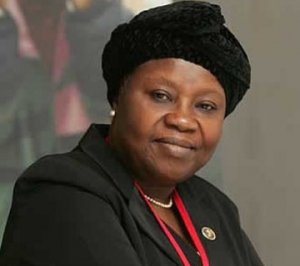
The current CJN, Justice Aloma Mukhtar, who is the first female
and the 13th indigenous CJN, will retire on Nov 20 upon attaining the mandatory
retirement age of 70.
Barring any last minute change, Mukhtar is likely to be
succeeded by Justice Mahmud Mohammed, who is currently the next most senior
Justice of the Supreme Court.
In fulfillment of constitutional provisions on the appointment
of the CJN, the Federal Judicial Service Commission, FJSC had met on October 23
and submitted a list of the next three most senior Justices of the Supreme
Court to the NJC.
The NJC is expected to meet on Thursday to recommend one of
those on the list to President Goodluck Jonathan.
Top on the FJSC’s recommended list is Justice Mohammed, who is
currently the Deputy Chairman of the NJC. The CJN is the Chairman of both the
NJC and the FJSC.
Others on the list are said to be two other Justices of the
Supreme Court in order of seniority, Justices Walter Onnoghen and Tanko
Muhammad.
Usually, the most senior among those recommended by the FJSC,
and who is next to the outgoing CJN is appointed the new Chief Justice by the
President.
The President’s choice often requires approval by the Senate in
line with section 231(1) of the Constitution.
A source at the FJSC, who is familiar with the processes of
appointing the nation’s CJN, confirmed the development to Channels Television
correspondent on Sunday.
“By sending additional two names to accompany the next most
senior Justice of the Supreme Court is just to fulfil all righteousness. It is
almost certain that the NJC at its meeting on Thursday will recommend Justice
Mohammed to the President and the President will then appoint him as the next
CJN,” the source said.
Paragraph 21(a) and (a) (i) of the Third Schedule of the
Constitution of the Federal Republic of Nigeria, which guides the appointment
of the CJN, Justices/judges and heads of various federal courts, says,
“The National Judicial Council shall have power to:
“Recommend to the President from among the list of persons
submitted to it by – the Federal Judicial Service Commission, persons for
appointment to the offices of the Chief Justice of Nigeria, the Justices of the
Supreme Court, the President and Justices of the Court of Appeal and the Chief
Judge and judges of the Federal High Court.”



